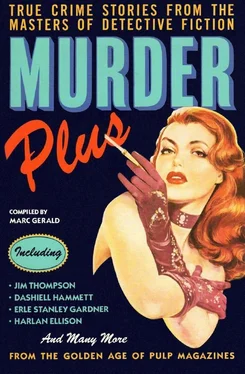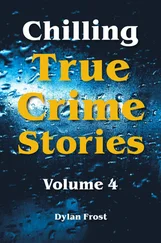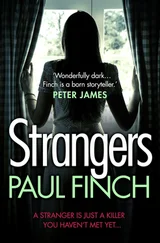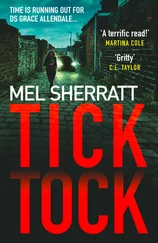Харлан Эллисон - Murder Plus - True Crime Stories From The Masters Of Detective Fiction
Здесь есть возможность читать онлайн «Харлан Эллисон - Murder Plus - True Crime Stories From The Masters Of Detective Fiction» весь текст электронной книги совершенно бесплатно (целиком полную версию без сокращений). В некоторых случаях можно слушать аудио, скачать через торрент в формате fb2 и присутствует краткое содержание. Город: New York, Год выпуска: 1992, ISBN: 1992, Издательство: Pharos Books, Жанр: Детектив, на английском языке. Описание произведения, (предисловие) а так же отзывы посетителей доступны на портале библиотеки ЛибКат.
- Название:Murder Plus: True Crime Stories From The Masters Of Detective Fiction
- Автор:
- Издательство:Pharos Books
- Жанр:
- Год:1992
- Город:New York
- ISBN:978-0-88687-662-3
- Рейтинг книги:4 / 5. Голосов: 1
-
Избранное:Добавить в избранное
- Отзывы:
-
Ваша оценка:
- 80
- 1
- 2
- 3
- 4
- 5
Murder Plus: True Crime Stories From The Masters Of Detective Fiction: краткое содержание, описание и аннотация
Предлагаем к чтению аннотацию, описание, краткое содержание или предисловие (зависит от того, что написал сам автор книги «Murder Plus: True Crime Stories From The Masters Of Detective Fiction»). Если вы не нашли необходимую информацию о книге — напишите в комментариях, мы постараемся отыскать её.
Murder Plus: True Crime Stories From The Masters Of Detective Fiction — читать онлайн бесплатно полную книгу (весь текст) целиком
Ниже представлен текст книги, разбитый по страницам. Система сохранения места последней прочитанной страницы, позволяет с удобством читать онлайн бесплатно книгу «Murder Plus: True Crime Stories From The Masters Of Detective Fiction», без необходимости каждый раз заново искать на чём Вы остановились. Поставьте закладку, и сможете в любой момент перейти на страницу, на которой закончили чтение.
Интервал:
Закладка:
Belle bought the place cheaply. She did not fear ghosts. By the time she left the property, however, the ghosts had excellent reason to be terrified of her.
Ninety days later, Merrel Sorenson dropped dead. In Chicago, he may have been a first-rate private detective. But in La Porte he died without ever knowing who had put arsenic in his coffee. The doctor who signed the death certificate was quite satisfied that Sorenson had died of a digestive ailment, and Belle eagerly collected the insurance, which totaled up to $8500.
Belle’s next husband was Peter Gunness and it was his name by which she was generally known. Probably because with one exception, he lasted considerably longer than her other consorts.
During the two years she spent as the wife of Peter Gunness, Belle went about establishing herself as a solid citizen of the community. She became a pillar of the church and no one sang hymns more loudly, praised the Lord with more gusto. She visited the La Porte County Orphanage and adopted three infant children, two girls and a blue-eyed boy. She was active in local charities, spoke harshly of no one, and laid down saucers of milk for stray cats. It was a convincing and effective cover-up and nobody could have been more amazed than Peter Gunness on the morning that he got hit in the head with a meat cleaver.
Belle Gunness summoned the doctor who shook his head sadly and, in turn, summoned the sheriff and the coroner.
Belle, with tears streaking down her cheeks, announced in a broken voice that the meat cleaver had fallen from the kitchen shelf directly onto the balding pate of her poor husband.
The coroner looked at the dead man’s skull and gave it as his opinion that the cleaver would have had to fall from the top of the Eiffel Tower in order to split Gunness’s head almost down to the chin. The kitchen shelf was five feet from the floor and Gunness who had been sitting down when the accident occurred would have been a scant foot beneath it.
Belle Gunness then wanted to know how a man who called himself a Christian could make such a horrible implication before an hour-old widow.
The sheriff inquired politely if the deceased had been insured in his wife’s favor.
It seemed he had — to the extent of $4000. But averred Belle Gunness, if any mean-minded member of the community thought that she would break the law, much less one of the Lord’s Commandments for a measly $4000, he was badly mistaken. She had never been so insulted in all her life.
The sheriff, after hearing Belle’s speech, was hesitant. But the coroner insisted that the cleaver could not have fallen on the head of the deceased; it had been wielded by an outside agency. Since Belle was the sole outside agency present when the tragedy had occurred, the sheriff took her to the county jail.
She wasn’t there long. Public sentiment was outraged. Belle Gunness was a staunch churchwoman. Belle Gunness carried soup to the sick and old clothes to the poor. Belle Gunness had taken three little waifs from the orphanage into her home. How then, asked the community with more passion than logic, could she be a murderess?
The authorities yielded to public pressure. Belle Gunness was released. The insurance company sighed and handed over the $4000 without further argument.
Even though Belle Gunness was completely vindicated, she had learned a lesson. It occurred to her that if, in the future, there were to be any corpses lying about her property, it would be far better if they were kept in a place where the suspicious eye of the coroner would not fall on them.
She announced that she was going into the hog raising business, and to that end engaged a mason to erect a smokehouse.
The smokehouse, which was made of cement, was attached to the kitchen by a narrow passageway. It contained all the accessories incidental to hog butchering: meat hooks, a vat, a cutting machine, and a number of keen knives and cleavers.
In the plot of ground contiguous to the smokehouse, Belle Gunness announced she planned to plant a vegetable garden. She fenced this land in with a rabbit-wire wall which was eight feet in height. When all this was done, she acquired several hogs, sat herself down at her writing desk, chewed the end of her pen thoughtfully, then composed an advertisement which was duly inserted in a farm periodical with a large Midwest circulation: “Personal: Charming but lonesome young widow, owning a fine farm in La Porte County, Indiana, wishes to make the acquaintance of a respectable gentleman of substantial means. Object matrimony. No letter considered unless writer is willing to become personally acquainted at the earliest opportunity.”
This advertisement, to say the least, was rather misleading. At this stage of her life, Belle Gunness could have been considered attractive only by the standards of a lecherous hippopotamus.
She was five feet, eight inches in height, and weighed some 230 pounds. Her hair, which had been dyed red a year before, was faded and unkempt. Her skin was weathered and tough. Her arms were thick, muscular, had the power of pile drivers. Her bosom was vast, held in check by a straining steel corset. She wore, as a rule, overalls and a man’s battered felt hat.
The first respectable gentleman of substantial means to reply to Belle Gunness’s advertisement was Ole Lindboe of Chicago. Lindboe was a middle-aged bachelor. He arrived at La Porte with $200 in cash, a $500 diamond ring, a costly gold watch and a light and amorous heart.
Belle apparently had little trouble in relieving Lindboe of his tangible possessions. But when he asked to marry her and, as her husband, share the profits of the farm, Belle demurred.
“I can only marry you if you really love me,” Belle said. “I’ve already had a couple of unhappy experiences.”
Lindboe inquired exactly how he could prove the depth of his affection.
“Work here for me for a while,” said Belle. “If you prove worthy, I’ll marry you.”
Lindboe nodded assent. “All right. How much do you intend to pay me?”
Belle was shocked at this solecism. “Pay my fiancé?” she exclaimed. “I never heard of such a thing.”
Lindboe finally went to work for nothing. At the end of the two months he was still a bachelor and he was still unpaid. He confronted Belle, laid down an ultimatum. Either he was to be married or paid. And that very night, too.
Belle eyed him quizzically. She said, “You’ve been very patient. Tonight, I’ll settle with you in full. In the meantime, go out to the vegetable garden and dig a big hole. I want to bury the garbage later.”
Ole Lindboe dug a great big hole. In the morning, it had been filled in — and Ole Lindboe had vanished. His skeleton was dug up, and identified by his teeth, some six years later.
Belle Gunness spent no time weeping over Ole Lindboe. She wrote a letter to the farm magazine asking them to repeat the advertisement that had run before.
This brought Mr. John Moos of Elbow Lake, Minnesota, into her life. Mr. Moos, a prosperous farmer, did not come empty handed. He brought $5000 in cash along with him.
What evidence is available indicates that John Moos surrendered his capital and became Belle’s combination hired man and lover. Apparently, he was not indispensable in either capacity. Three months later he disappeared during the height of Belle’s hog butchering season.
Belle announced to her neighbors that Moos had returned to Elbow Lake, and smoothed over a new vegetable patch in her garden.
It was then that Belle Gunness met Ray Lamphere, who seemed to have signed an iron-clad contract with his guardian angel at birth. As far as Belle Gunness was concerned, he led a charmed life.
They met, not through the matrimonial advertisement, but on the street in La Porte. Lamphere was a graduate of Indiana University, and he was broke. This latter fact was not destined to win over Belle Gunness, but oddly enough, she took a liking to him.
Читать дальшеИнтервал:
Закладка:
Похожие книги на «Murder Plus: True Crime Stories From The Masters Of Detective Fiction»
Представляем Вашему вниманию похожие книги на «Murder Plus: True Crime Stories From The Masters Of Detective Fiction» списком для выбора. Мы отобрали схожую по названию и смыслу литературу в надежде предоставить читателям больше вариантов отыскать новые, интересные, ещё непрочитанные произведения.
Обсуждение, отзывы о книге «Murder Plus: True Crime Stories From The Masters Of Detective Fiction» и просто собственные мнения читателей. Оставьте ваши комментарии, напишите, что Вы думаете о произведении, его смысле или главных героях. Укажите что конкретно понравилось, а что нет, и почему Вы так считаете.












